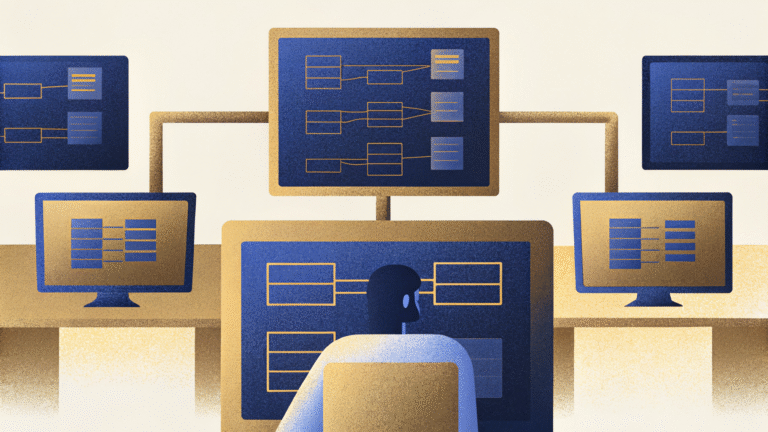Inside Anthropic: The AI Powerhouse Backed by Billions to Make AI Safer

Anthropic is an American artificial intelligence (AI) startup focused on developing safe and beneficial AI systems. Founded in 2021, it has quickly emerged as a significant player in the rapidly evolving AI landscape, particularly in the realm of large language models (LLMs). (Anthropic)
The company was founded by seven former members of OpenAI, including siblings Daniela and Dario Amodei, who is the current CEO. This pedigree has contributed to Anthropic’s strong emphasis on AI safety research and responsible development practices.
Headquartered in San Francisco, California, Anthropic is tackling the critical challenge of aligning advanced AI systems with human values. The startup aims to “study their safety properties at the technological frontier” and use this research to deploy safe models for the public.
Anthropic is perhaps best known for developing a family of LLMs named Claude, designed to compete with OpenAI’s ChatGPT and Google’s Gemini. Claude embodies Anthropic’s commitment to AI safety through the implementation of “Constitutional AI.” This approach involves training the model with a set of principles or “constitution” that guides its responses and helps ensure they are helpful, harmless, and honest.
Meet the Visionaries Behind Anthropic: From OpenAI to Building Safer AI
Anthropic, a prominent artificial intelligence company, was co-founded by Daniela Amodei and Dario Amodei, siblings who possess deep expertise in AI research and entrepreneurship. They are joined by prominent individuals who left OpenAI, Jan Leike is another prominent name who has joined Anthropic in May 2024. Furthermore, Mike Krieger joined Anthropic as its Chief Product Officer.
Dario Amodei, born in 1983, is an Italian-American artificial intelligence researcher and entrepreneur. He began his undergraduate studies at Caltech before transferring to Stanford University, where he earned a degree in physics. He also holds a PhD in physics from Princeton University, where he studied electrophysiology of neural circuits, and was a postdoctoral scholar at the Stanford University School of Medicine. Before co-founding Anthropic, Dario worked at Baidu and Google, and in 2016, he joined OpenAI, eventually becoming the vice president of research. (Dario Amodei)
Daniela Amodei, born in 1986 or 1987, is an Italian-American artificial intelligence researcher and entrepreneur. She graduated from Lowell High School and summa cum laude from the University of California, Santa Cruz, with a Bachelor of Arts in English Literature. Daniela started her career in global health and politics and then briefly managed communications for House Representative Matt Cartwright in Washington D.C. In 2013, she joined Stripe as an early employee before transitioning to OpenAI in 2018, where she served as the vice president of safety and policy. (Daniela Amodei)
Jan Leike (born 1986 or 1987) is an AI alignment researcher who has worked at DeepMind and OpenAI. Jan Leike obtained his undergraduate degree from the University of Freiburg in Germany. After earning a master’s degree in computer science, he pursued a PhD in machine learning at the Australian National University under the supervision of Marcus Hutter. In 2021, Leike joined OpenAI as well. (Jan Leike)
Mike Krieger (born March 4, 1986) is a Brazilian entrepreneur and software engineer who co-founded Instagram along with Kevin Systrom, and served as its CTO. During Krieger’s tenure as CTO, Instagram’s user base expanded from a few million to 1 billion monthly active users. In May 2024, Krieger announced that he had joined Anthropic as its Chief Product Officer. (Mike Krieger)
The Amodei siblings, along with other senior members of OpenAI, established Anthropic in 2021. They left OpenAI due to differing views on the company’s direction. In November 2023, the board of directors of OpenAI approached Dario Amodei about replacing Sam Altman and potentially merging the two startups, but Amodei declined.
AI Market in 2025: Why the Industry is Exploding
The global artificial intelligence market was valued at USD 279.22 billion in 2024 and is projected to grow to USD 1,811.75 billion by 2030, at a CAGR of 35.9% from 2025 to 2030. This substantial growth is fueled by continuous research and innovation, particularly by major technology companies, driving the adoption of advanced technologies across various industry verticals such as automotive, healthcare, retail, finance, and manufacturing. For example, EthicalWeb. Ai launched Al Vault in March 2025, a generative Al-powered enterprise security SaaS solution for AWS customers, enhancing threat detection, response, and prevention. (Grand View Research)
The accessibility to historical datasets is a key factor accelerating innovation in Al. With data storage and recovery becoming more economical, healthcare institutions and government agencies are building accessible, unstructured data for research. Researchers are gaining access to rich datasets, from historical rain trends to clinical imaging, enabled by next-generation computing architectures.
Regional analysis indicates that North America held a significant revenue share of 29.5% in 2024, driven by favorable government initiatives encouraging Al adoption across industries. Governments in North America are investing in Al research and development, establishing specialized research institutes, and funding Al-related projects. The Asia Pacific region is anticipated to register the highest CAGR over the forecast period, with the financial industry increasingly utilizing Al for tasks such as customer service, credit scoring, risk assessment, and fraud detection.
Software solutions led the market with 35.0% of the global revenue in 2024, owing to advancements in information storage capacity, high computing power, and parallel processing capabilities. The ability to extract data, provide real-time insight, and aid decision-making positions this segment significantly.
What Drives Anthropic: Mission, Vision, and the Pursuit of Safe AI
Anthropic’s mission centers on building beneficial AI. Their vision is a future where AI systems are reliable, safe, and contribute positively to society. They aim to achieve this by advancing AI safety research and developing AI models that are inherently less prone to harmful behaviors. They are deeply concerned with addressing challenges such as bias, discrimination, and the potential for misuse, ensuring that AI systems are developed and deployed responsibly.
Problems Anthropic Solves:
Anthropic tackles key problems within the AI landscape, specifically related to safety and alignment. These include:
- AI Safety and Alignment: Addressing the critical challenge of ensuring that advanced AI systems act in accordance with human intentions and values. This involves developing techniques to make AI behavior more predictable and controllable.
- Interpretability: Building models that are easier to understand and debug. By improving interpretability, Anthropic aims to make AI systems more transparent and accountable.
- Controllability and Steerability: Ensuring that AI systems can be effectively guided and controlled, allowing humans to direct their behavior and prevent unintended consequences.
- Reducing Bias and Discrimination: Actively working to identify and mitigate biases embedded in training data and model architectures, contributing to fairer and more equitable AI outcomes.
Core Technology and Approach:
Anthropic’s core technological approach revolves around Constitutional AI. This approach involves training AI models based on a set of principles or “constitution,” which guides the model’s responses and behavior. By defining clear ethical guidelines, Anthropic seeks to imbue its AI systems with a sense of responsibility and prevent them from generating harmful or biased outputs. Anthropic is well-known for its Claude family of large language models, which are designed to be helpful, harmless, and honest.
Business and Revenue Model:
Anthropic operates on a hybrid model, combining research with commercial applications.
- API Access and Partnerships: Anthropic generates revenue by providing API access to its AI models, allowing businesses and developers to integrate Claude into their own products and services. This allows them to leverage AI for a variety of uses, such as customer service, content creation, and data analysis.
- Enterprise Solutions: The company offers tailored AI solutions for enterprise clients, helping them solve specific business challenges and improve operational efficiency.
- Research Collaborations: Anthropic also engages in research collaborations with other organizations, contributing to advancements in AI safety and earning revenue through grants and partnerships.
Anthropic has garnered significant attention and investment from various venture capital firms and tech companies, including Google and Amazon, reflecting the growing recognition of the importance of AI safety and the potential of Anthropic’s approach. The company’s commitment to responsible AI development positions it as a key player in shaping the future of the AI industry.
Claude and Beyond: Every Product and Feature Anthropic Offers in 2025
Anthropic’s offerings revolve around its core AI assistant, Claude, and extend into a variety of products, solutions, and features designed to leverage the power of its AI models across diverse industries. At the heart of Anthropic’s product suite is Claude, a conversational AI model built on the principles of being helpful, honest, and harmless. Claude engages in natural, multi-turn dialogues, proving adept at tasks such as summarization, question answering, content generation, and even code assistance.
A key differentiator lies in its “Constitutional AI” methodology, which prioritizes safety and reliability. Claude is available through a web interface for direct interaction and via APIs for deeper integration into various applications. Anthropic continually refines Claude, releasing improved versions like Claude 2, 2.1, and the advanced Claude 3 family, each boasting advancements in language understanding, reasoning capabilities, speed, safety, and multimodal capabilities.
Beyond the core AI assistant, Anthropic provides the Claude API, empowering developers to seamlessly integrate Claude into their applications and enterprise systems. This API is accessible both directly through Anthropic’s platform and via established integrations like Amazon Bedrock, Google Vertex AI, and Scale AI. The API’s on-demand availability and scalable infrastructure support a wide array of use cases, including document processing, chatbot development, and the creation of internal tools.
Recognizing the potential of AI in education, Anthropic has also developed Claude for Education, launched in early 2025. This version is tailored for both faculty and students, featuring a “Learning Mode” that employs Socratic questioning to stimulate critical thinking and deeper understanding. Designed for easy adoption, it integrates with leading learning management systems (LMS) like Canvas through a collaboration with Instructure and Internet2.
Further extending its reach, Anthropic has strategically partnered with major cloud providers. Claude in Amazon Bedrock allows users to access Claude as a foundational model directly within the AWS ecosystem. This integration enables enterprises to combine Claude with other AWS services like S3, SageMaker, and Lambda, facilitating the development of powerful generative AI applications with fine-tuned models and real-time inference options.
Similarly, Claude in Google Cloud / Vertex AI gives Google Cloud customers access to Claude’s API within Google’s enterprise AI pipelines. This integration combines Claude’s capabilities with Google Cloud’s robust security, billing, and DevOps infrastructure, streamlining the development and deployment of generative AI applications.
Anthropic has also expanded into specific industry solutions. Claude in Zoom Contact Center enhances customer support by assisting human agents, summarizing issues, and powering self-service chatbots. Claude for Legal Services assists legal professionals with legal research, document summarization, drafting legal memos, and conducting risk and compliance checks, all while ensuring privacy-preserving document analysis.
In the healthcare sector, Claude for Healthcare Applications aids in generating medical content summaries, facilitating patient communication, and analyzing scientific literature, with the potential for HIPAA-compliant deployments. For Financial Services, Claude supports risk management, data analysis, and automation through market trend summarization, risk and sentiment analysis, and financial document generation.
Claude for Enterprise Customer Support offers 24/7 AI chatbot support, faster issue resolution through natural language understanding, and real-time assistance for human agents. Finally, Claude in Snowflake Cortex AI allows Snowflake users to leverage Claude 3.5 Sonnet directly on their enterprise data for natural language querying, summarization, and categorization.
Inside the Tech Stack: How Anthropic Builds Transparent and Steerable AI
Anthropic distinguishes itself in the competitive AI landscape through a commitment to safety, interpretability, and steerability, reflected in its core technological innovations. A cornerstone of Anthropic’s approach is Constitutional AI (CAI), a revolutionary method for aligning AI models with human values.
Unlike traditional reinforcement learning from human feedback (RLHF), CAI trains models to adhere to a “constitution”—a set of principles drawn from human rights, philosophy, and ethical guidelines. This allows the AI to self-critique its outputs and improve based on these constitutional principles, reducing reliance on potentially biased or inconsistent human evaluations. The result is more transparent, consistent, and ethically grounded AI systems.
At the heart of Anthropic’s capabilities are its Claude language models. Named in honor of Claude Shannon, the “father of information theory,” the Claude family of models are state-of-the-art LLMs. Known for their steerability, these models can adapt their responses based on tone, instruction, or context. Claude models are explicitly trained for helpfulness, honesty, and harmlessness, showcasing strong performance in reasoning, summarization, math, coding, legal analysis, and multilingual tasks. The latest Claude 3.5 models extend these capabilities with multi-modal processing, enabling them to reason across both text and image inputs.
Anthropic stands out by significantly investing in interpretability research. This initiative seeks to understand the inner workings of neural networks at a granular level. By focusing on identifying “features” and reverse engineering smaller transformer models, Anthropic aims to decode the complex processes within these AI systems. This deep understanding is crucial for identifying potential harmful or biased outputs, debugging AI systems, and ensuring accountability. In conjunction with this, Large-scale Reinforcement Learning from Human Feedback (RLHF) is also used to fine-tune models. While it is not unique to Anthropic, this process allows models to learn from examples and instructions to improve their utility and safety.
Anthropic’s commitment to innovation extends to its massively scalable infrastructure. Utilizing cloud platforms like Google Cloud (TPUs) and Amazon AWS (Trainium 2), the company trains multi-trillion parameter models across vast clusters with a focus on reliability and cost-efficiency. Beyond the core technologies, Anthropic is also paving the way for enhanced AI interaction through features like learning modes designed for educational purposes and the forthcoming integration of external tools. This allows Claude to become an even more capable AI agent for enterprise or complex tasks, and for users to learn through active engagement with the AI. Coupled with enterprise-grade controls and robust security postures, Anthropic ensures that its models are not only powerful but also safe and reliable.
The Real-World Impact of Anthropic: Clients, Awards, and Industry Influence
Anthropic has made a significant impact on the AI landscape by prioritizing the development of safe and interpretable AI systems. This dedication to responsible AI deployment has set new standards for ethical considerations within the industry. Their commitment has been recognized through participation in crucial initiatives like the White House’s voluntary commitments for responsible AI development.
The company’s influence is evident in its impressive clientele, which includes notable organizations like Lonely Planet, Bridgewater Associates, and LexisNexis Legal & Professional. These clients leverage Anthropic’s Claude for a diverse range of applications, demonstrating the practical utility and adaptability of their AI solutions. Furthermore, Anthropic is fostering the next generation of AI talent through educational collaborations with institutions such as Northeastern University and the London School of Economics, integrating Claude into their educational frameworks.
Anthropic’s potential and dedication to responsible AI have also attracted significant investment from tech giants like Amazon and Google. Their initiatives and partnerships are consistently featured in reputable publications, showcasing their pivotal role in shaping the future of AI. Moreover, businesses across various sectors have reported improvements in efficiency and innovation by implementing Claude into their operations, highlighting Anthropic’s real-world market impact and client success stories. Anthropic’s research and publications contribute significantly to ongoing discussions about AI safety, ethics, and policy, influencing industry practices and standards, solidifying its market presence.
Anthropic’s Strategic Partnerships: Amazon, Google, Snowflake and More
A cornerstone of their strategy involves collaborating with major cloud providers. Anthropic has selected Google Cloud as its cloud provider, tapping into its robust GPU and TPU clusters to train, scale, and deploy its AI systems.
Furthermore, Amazon has invested a substantial $8 billion in Anthropic, intensifying the competition in the generative AI space and securing significant compute resources through initiatives like Project Rainier. In Project Rainier, Anthropic collaborates with Amazon to build large AI datacenter clusters powered by Amazon’s Trainium 2 chips.
Beyond cloud infrastructure, Anthropic focuses on integrating its models into existing enterprise workflows. A multi-year partnership with Snowflake enables Snowflake customers to access Anthropic’s Claude models within Snowflake Cortex AI, significantly enhancing enterprise AI applications with advanced language processing.
Similarly, Anthropic has partnered with Palantir to integrate Claude AI models into Palantir’s AI Platform (AIP) on AWS, providing U.S. government intelligence and defense agencies with powerful AI tools for data analysis and decision-making. Integrations with platforms like Scale AI, which allows Scale AI customers to build applications using Claude, and UiPath, which sees Claude 3.5 Sonnet integrated into UiPath’s products, further broaden Anthropic’s reach.
Anthropic is also dedicated to responsible AI integration in education. Through partnerships with universities like Northeastern University, the London School of Economics, and Champlain College, Anthropic has introduced “Claude for Education,” incorporating features like “Learning Mode” to enhance critical thinking. Collaborations with tech infrastructure organizations like Internet2 and Instructure support the seamless deployment of Claude within existing learning management systems. Finally, major corporations like WPP, BMW, and Novo Nordisk are leveraging Anthropic’s Claude chatbot, highlighting its versatility across industries ranging from advertising to pharmaceuticals.
Anthropic’s $14.3B Funding Journey: Investors, Valuation, and Future Revenue
Anthropic has raised a staggering $14.3 billion in total equity funding, reflecting the immense confidence investors place in the company’s vision and trajectory. The journey began in 2021 with a $124 million Series A round, backed by early believers like Dustin Moskovitz, Eric Schmidt, and Jaan Tallinn. Since then, the company has grown rapidly, attracting big-name institutional and corporate investors in nearly every round. (Tracxn)
The pace picked up dramatically in 2023 and 2024. In May 2023, Anthropic secured $450 million at a post-money valuation of $4.1 billion, drawing in a powerful mix of institutional backers like Spark Capital and Salesforce Ventures, along with corporate giants including Google, Zoom, Microsoft, and Alphabet. This round set the tone for a flurry of subsequent investments. Amazon made significant bets with $1.3 billion in September 2023 and another $2.8 billion in March 2024, followed by a massive $4 billion round in November 2024. Google has also been a consistent supporter, contributing in convertible debt form and later investing $1 billion in January 2025.
In March 2025, Anthropic closed one of its biggest funding rounds yet, bringing in $3.5 billion from major players like Lightspeed Venture Partners, General Catalyst, Cisco Investments, and Bessemer. Corporate heavyweights like Fidelity, Jane Street, and once again Google also participated. With this latest round, the company’s post-money valuation reached an impressive $61.5 billion as of March 2025.
In total, Anthropic has completed over a dozen funding events across multiple series, involving 53 investors—45 institutional and 8 angel. Financially, Anthropic is gearing up for explosive growth. According to The Information, revenue could hit $34.5 billion by 2027.
Why Anthropic Matters: The Future of AI Is Being Written Now
Started in 2021 by siblings Dario and Daniela Amodei and other ex-OpenAI experts, Anthropic has taken a different path. While many are racing to push out more powerful models, Anthropic focuses on making sure those models won’t harm us. Their approach, called Constitutional AI, teaches models to follow ethical guidelines instead of relying on messy human feedback. That’s how Claude—their flagship AI assistant—was born, and it just keeps getting better with each version.
But Anthropic is more than just cool tech. It’s helping schools, legal firms, hospitals, financial services, and even government bodies use AI more responsibly. Whether it’s improving customer service through Claude-powered chatbots, helping doctors summarize medical data, or enabling legal teams to draft smarter, faster, and safer—Anthropic is quietly weaving AI into the real world in the right way. And their efforts haven’t gone unnoticed—major investments from Amazon, Google, and over 50 investors show that the world is betting big on them.
Now here’s the real takeaway—Anthropic was just an idea four years ago. Today, it’s valued at over $60 billion. So if you’re sitting on an idea—any idea—start building. Tinker with it, talk to people, and take that first step. The future’s not waiting.
And hey, if stories like this get you excited, stick around. Check out more profiles and deep dives on Venture Kites. We cover bold startups, wild ideas, and the people crazy enough to chase them. You never know, your idea might be the next story we tell.
At a Glance with DORK Company
Dive In with Venture Kites
Lessons From Anthropic
Build Differentiation into Your Product
The Lesson & Why it matters: In a crowded space, standing out is critical. Your product must solve problems in a way others don’t.
Implementation: Identify one unique approach or feature. Center your product around it.
How Anthropic implements it: Anthropic created “Constitutional AI,” a safety-first framework that guides how its models behave—something no one else had done at scale.
Leverage Deep Expertise in Leadership
The Lesson & Why it matters: Experienced founders with credibility attract investors, talent, and users faster.
Implementation: Build a team that’s walked the walk. Their insight can save years of trial and error.
How Anthropic implements it: The Amodei siblings, along with other OpenAI veterans, used their deep knowledge and network to build fast and strong.
Choose Principles Over Popularity
The Lesson & Why it matters: Sometimes, doing what’s right means going against the flow. It pays off in the long run.
Implementation: Don’t chase trends. Let your principles guide your product and company decisions.
How Anthropic implements it: They left OpenAI over philosophical differences. Instead of copying competitors, they built Claude with a different, values-first approach.
Invest in Scalable Infrastructure Early
The Lesson & Why it matters: When growth hits, your tech stack shouldn’t break. Scale must be built into the foundation.
Implementation: Choose partners that support large-scale growth. Design your backend to handle spikes.
How Anthropic implements it: They’ve partnered with AWS and Google Cloud to power trillion-parameter models—preparing for huge demand and massive compute needs.
Stay Research-Focused While Monetizing
The Lesson & Why it matters: Balancing profit with purpose is tricky. But it’s the only way to build a future-ready company.
Implementation: Separate research and commercial arms. Monetize without diluting core values.
How Anthropic implements it: Anthropic offers enterprise solutions, APIs, and strategic partnerships—while staying committed to AI safety research.
Youtube Shorts
Author Details
Creative Head – Mrs. Shemi K Kandoth
Content By Dork Company
Art & Designs By Dork Company












